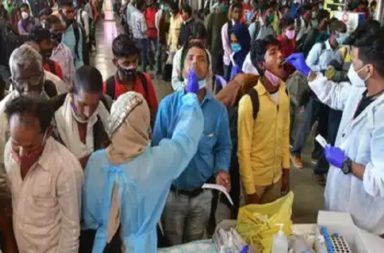Russia’s Covid-19 vaccine candidate, nicknamed Sputnik V, has proved to be immunogenic generating an immune system response against SARS CoV-2 and without any serious adverse effects in early-stage trials. According to the study, the researchers enrolled 76 healthy adult volunteers (aged 18-60 years) for the two Phase-1 and Phase-2 studies, 38 people in each study. The result of the trials was published in Lancet on Friday.
The vaccine was administered in two forms, frozen and freeze-dried, and the frozen form showed greater efficacy in terms of production of neutralising antibodies and T-cells. This aspect of the research is important since the freeze-dried form proving effective (even though lesser than the frozen form) means that the vaccine can be transferred in a stable manner through the existing vaccine cold-chain conditions that maintain the efficacy of a vaccine, eliminating the need for a specialised storage and transfer system. Most vaccine candidates so far have not demonstrated this even if they can be transferred and stored similarly.
“The study is a little underpowered with only 40 volunteers in Phase 2. Otherwise, the vaccine appears to be reasonably well tolerated and raises decent antibodies and T-cell responses,” said senior virologist Shahid Jameel, who heads the Department of Biotechnology-Wellcome Trust partnership programme and not involved with the trial.
“The two 42-day trials – including 38 healthy adults each – did not find any serious adverse effects among participants, and confirmed that the vaccine candidates elicit an antibody response,” the study’s authors wrote. The study’s authors also held that large, long-term trials, including a placebo comparison, and further monitoring are needed to establish the long-term safety and effectiveness of the vaccine for preventing COVID-19 infection. Reports suggest that Russia is planning a Phase-3 trial of the vaccine involving 40,000 people.
The vaccine is the first in the world to be authorised for general use. It was approved by the Russian government on August 11, without phase-3 trials, triggering global criticism.





